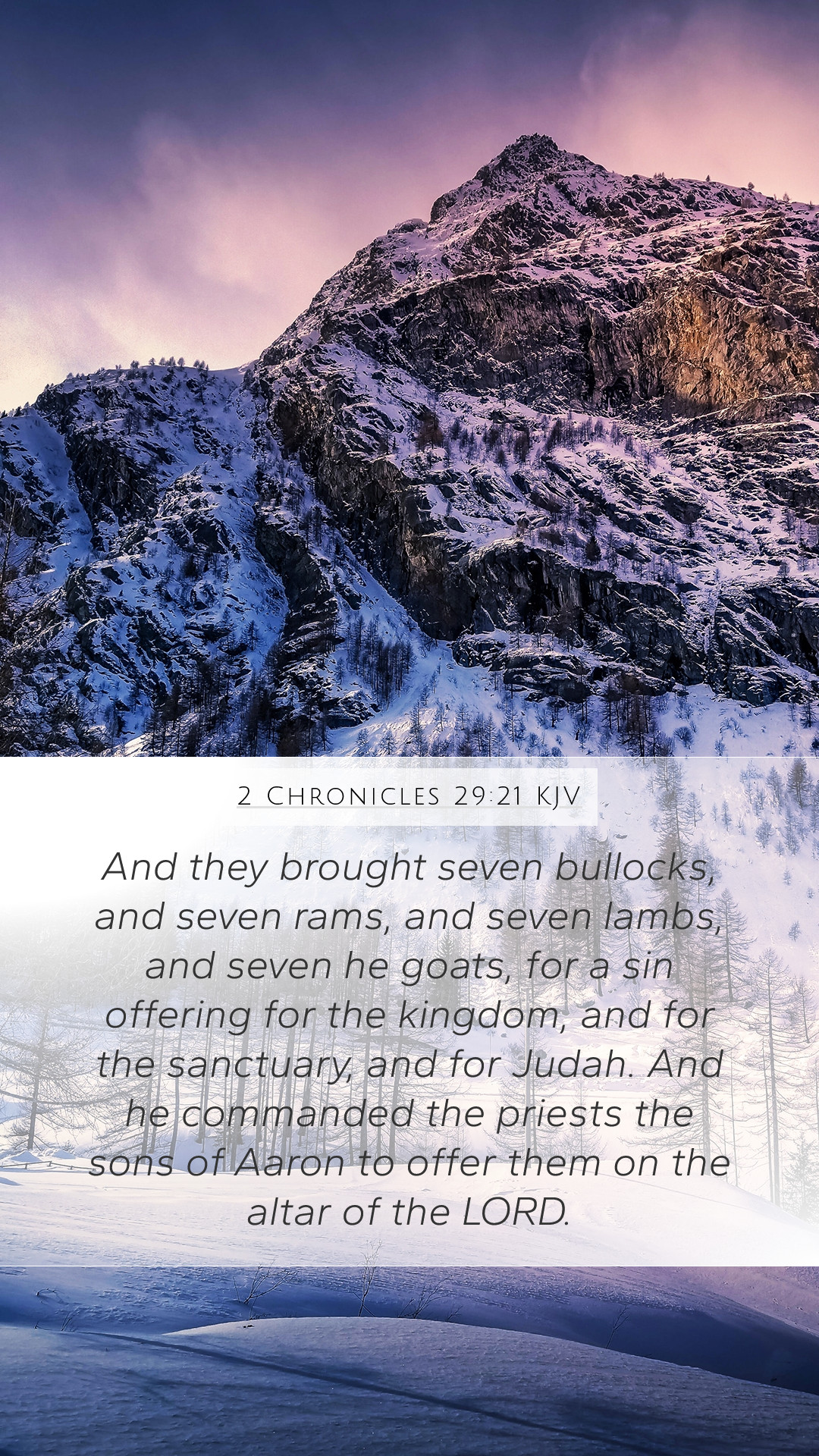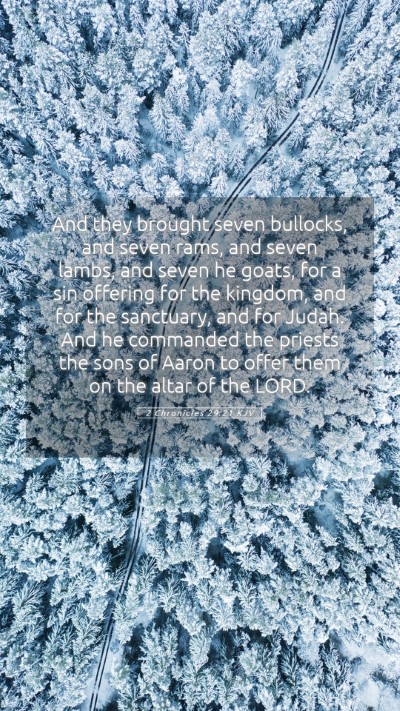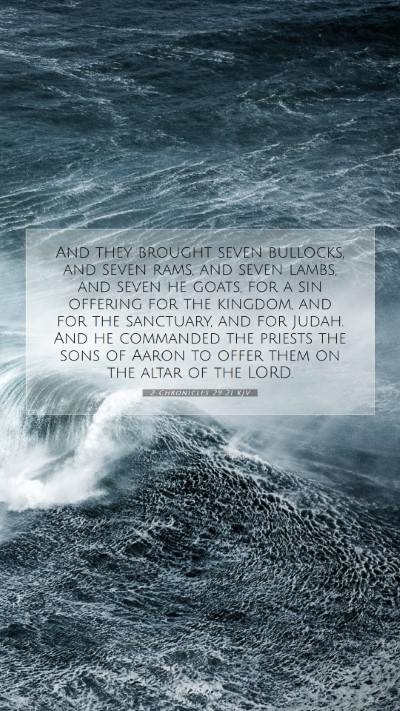Understanding 2 Chronicles 29:21
Scripture: “And they brought seven bullocks, and seven rams, and seven lambs, and seven he-goats, for a sin offering for the kingdom, and for the sanctuary, and for Judah: and he commanded the priests the sons of Aaron to offer them on the altar of the Lord.” (2 Chronicles 29:21)
Meaning and Interpretation
In this verse, we find King Hezekiah invoking reform and restoration in the kingdom of Judah after a period of neglect and idolatry. The act of offering a sin offering signifies repentance and the desire to mend the broken relationship with God. The number seven, representing completion and perfection in the biblical context, underscores the thoroughness of the atonement process.
Insights from Commentaries
- Matthew Henry:
Henry highlights the significance of Hezekiah’s actions as a means of reestablishing proper worship in a land that had strayed from God. He emphasizes that the multitude of sacrifices reflects the urgency and gravity of cleansing not just the individuals, but the entire nation of Judah.
- Albert Barnes:
Barnes notes that the sacrifices were essential as part of the ceremonial law established for atonement and purification. He digs into the symbolism of the offerings as a way of recognizing the sins of the king and the people, aligning with the need for corporate repentance.
- Adam Clarke:
Clarke elaborates on the historical context, framing Hezekiah’s reign as a pivotal moment for Judah’s revival. He remarks that the offerings were not only for expiation but also served as a re-dedication to God’s service. This moment marks a transition from idolatry back into covenant faithfulness.
Spiritual Significance
The act of bringing forth these offerings signifies more than ritual; it indicates a heart genuinely seeking restoration. This illustrates an important aspect of Bible study insights: that offerings and sacrifices are not merely about the act itself but are deeply intertwined with the intentions of the heart and the state of the community.
Application in Modern Life
This passage encourages believers to actively pursue reconciliation with God whenever they find themselves straying from His ways. It teaches the value of corporate worship and responsibility, suggesting that both individuals and communities need to align themselves with God’s will.
Related Bible Cross References
- 2 Chronicles 7:14: Emphasizes the importance of humility, prayer, and turning from wickedness as a way to seek healing from God.
- Leviticus 16:21-22: Discusses the Day of Atonement and the symbolism of the scapegoat, demonstrating the necessity of dealing with sin.
- Hebrews 9:22: States that without the shedding of blood there is no forgiveness, emphasizing the need for sacrifice in the context of sin and redemption.
Conclusion
In conclusion, 2 Chronicles 29:21 serves as a profound reminder of the importance of repentance, restoration, and proper worship. The combined commentary provides a rich understanding of the biblical context, offering valuable Bible verse explanations and insights that can be applicable to personal and corporate worship today.
Further Exploration
For those interested in delving deeper, consider engaging in Bible study groups or utilizing Bible study resources to explore the themes of repentance, atonement, and worship in greater detail. This verse is a gateway to understanding the broader narrative of divine grace and human response throughout Scripture.


